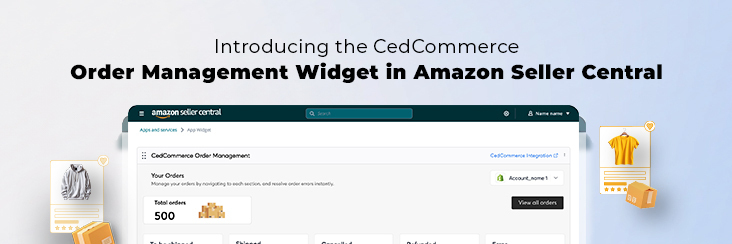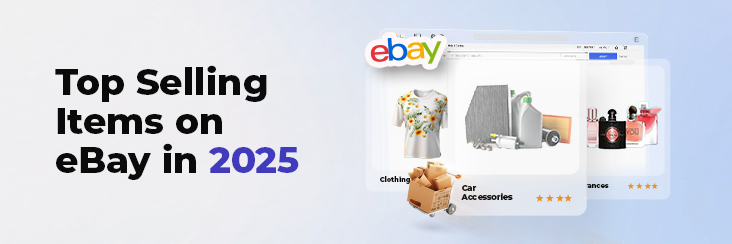Walmart Embraces Amazon MCF: A New Era of Cross-Platform Fulfillment for eCommerce
Walmart Embraces Amazon MCF: A New Era of Cross-Platform Fulfillment for eCommerce
The Retail world is progressing towards an omnichannel establishment, and Facebook is becoming the key tool through its widespread popularity. Several merchants from around the globe are onboarding to various commerce Facebook Surfaces to sell their products. However, in order to excel on Facebook commerce surfaces, one needs to ensure the Facebook Marketplace selling guidelines that merchants need to keep in mind before they list their products, so let’s dig into the most effective guidelines by the social media tech giant.
Table of Content:
Oftentimes, merchants face the issue of getting their listed products removed from Facebook surfaces, or the details of the products are not available. Thus, these listing problems that merchants face are caused due to the violation of the commerce policies.
But what are the rules for selling on Facebook Marketplace? We’ll soon find out!
Facebook has been providing online sellers with the opportunity to capitalize on the social commerce platform by interacting with their users. Hence, this allows them to create a better relationship between the customers and the business.
Additionally, it develops a sense of authenticity and trust among the customers for the business. This is where the Facebook Commerce Policy comes in.
Let us dive in and learn about these Facebook Marketplace rules for sellers and how they can help merchants sell.
In simple words, Facebook Policies are a set of rules and regulations everyone needs to follow when creating a Facebook Profile or a business account.
Facebook Policies consist of commerce policies, community standards, and community guidelines. And these rules and regulations provide a clear path for merchants simplifying for them what to sell and what not to sell.
These Commerce Facebook policies lay down the rules for merchants who want to list their products on any of the Facebook surfaces. Additionally, these policies also include exceptions and different sets of rules for other regulated products.
Facebook Policies is a very broad term. It covers everything from onboarding to selling and what to sell and what not to sell.
But, to provide better understanding and clarity, these policies are further divided into five different categories. Let us discuss Facebook’s commerce policies in detail:
The first type of policy that Facebook has brought forward is the merchant policy. The sole purpose of this policy is to provide better guidance for merchants that use Facebook Marketplace or any other Facebook surface to sell their physical goods.
The merchant’s policy talks about how to fulfill and ship orders for customers. It allows merchants to understand how to build better relationships with customers.
Additionally, it pushes them to understand the type of help they need to extend to the buyer after they have made a buy. It additionally suggests merchants’ guidelines for refunds or any other purchase-related issues.
After you have understood Merchants policies, you must also understand what Facebook Commerce Policies are.
Facebook now Meta has laid down several regulations which regulate the type of products for listing on Facebook and Instagram. Additionally, merchants are also made aware of the local laws and regulations that apply to their businesses.
Another policy that the merchants must be aware of is the Commerce Product Merchant Agreement. This agreement policy lists terms that apply when merchants deal with Facebook products and services.
Facebook Purchase Protection Policies are another set of rules put forward by Facebook to provide better authentication to the purchases made over Facebook or Instagram. However, it is very often that buyers face certain problems, and Facebook’s Purchase policy is there to help merchants tackle these issues and provide a quick solution.
When merchants sell on Facebook, they must be aware of the policy that will benefit them and the buyers. And they must take the help of such policies to ensure buyers’ safety.
Be it a business or a Facebook user; they are bound to post some kind of content on either of the two Meta platforms. Facebook Community Standards and Instagram Commerce Policies are there to ensure that Facebook and Instagram are safe places for everyone. So, the policies apply to every user posting personal or business-related content.
Everyone with a fair amount of idea about Marketplaces knows they cannot sell everything. There are certain restrictions in Facebook’s commerce Policies that you must keep in mind. Let us go through a list of all the products merchants cannot sell on Facebook social commerce.
All Facebook Surfaces do not promote the selling or buying of any adult products.
All Facebook Surfaces do not promote the selling or buying of alcohol.
All Facebook Surfaces do not promote the selling or buying of any human body parts or organic fluids.
Merchants cannot list or promote devices that promote illegal content broadcasting.
Facebook surfaces do not allow any kind of discrimination on the platform. As a result, it prohibits any listing action related to wrongful discrimination based on the personal information of buyers.
Facebook policies prohibit the buying and selling of fake or real currency and documents.
Facebook platforms prohibit merchants to list, promote, or help any online gambling activity to earn money.
Facebook platforms prohibit the selling or buying of any hazardous products on Facebook.
Listing of any information or product that promotes human exploitation and illegal services is not allowed.
Facebook prohibits the buying and selling of Ingestible supplements or gummies.
Prohibition for listing jobs on Facebook is also prohibited. This is to reduce misleading, deceptive, and fraudulent opportunities.
Listing for animals and animal-related products is not allowed on Facebook. Additionally, preserved lands are also prohibited from listing.
Facebook does not allow the selling and buying of medicines and healthcare products. These products include every other medical product, such as consumables and nicotine-rich smokables.
Facebook does not promote hateful or misleading products and content.
The listing that is not for sale is not allowed according to Facebook community standards marketplace. This includes promoting news, humor, or other similar content.
Listing and promotion of all these products are not allowed. It is not only restricted under commerce policies but also goes against community guidelines.
Facebook prohibits the selling of recalled products.
Facebook Commerce policies do not allow the listing of any kind of services.
Facebook platforms prohibit products that suggest sexism in any manner.
Facebook platforms prohibit stolen or products that do not have authentic supporting papers.
Facebook platforms prohibit merchants to sell and list any kind of Weapons, explosives, and Ammunition.
Facebook Surfaces prohibit the listing of tobacco-related products. Additionally, paraphernalia also falls under this category of banned products.
Facebook prohibits the listing of Subscriptions to digital platforms and downloadable content.
Facebook prohibits the listing of cosmetics sold after repacking.
Facebook has strict policies against third-party content. Therefore, it prohibits every content that violates as well as infringes intellectual property rights. Additionally, the policies single out all the copyright issues and trademarks. Thus, it only allows the listing of genuine products.
Facebook examines each listing and ensures that it complies with Facebook’s Community Standards. As a result, all items sold on Facebook and Instagram must adhere to these rules and regulations.
Sellers who disregard the rules are at risk of serious repercussions. Consequently, here are some of the penalties they might face:
For instance, if you post materials, goods, and services that go outside the rules of commerce. As a result, Facebook will immediately alert you of your infringement by sending you a warning letter. According to Facebook Marketplace rules for sellers, Facebook can also block your account if you do not subject to extra measures.
Not everyone can keep their entire time and resources dedicated to selling on Facebook. Consequently, every merchant looks for an easy way where they can list their products and start selling on the go.
CedCommerce is a Meta Business Partner that has been actively helping merchants. Therefore, with CedCommerce, you can easily onboard different Facebook surfaces and start selling.
CedCommerce: Facebook & Insta App provides several integrated features. Additionally, these features include Easy Onboarding, Product Listing, Product repricing, and so on.
Therefore, with the help of experts at CedCommerce, you don’t need to worry about Facebook rules and regulations. All the experts will take care of listings and help you with all the processes to make selling easier for you.
Understanding the importance of rules and regulations when trying to sell on Facebook and Instagram is crucial. Consequently, if a merchant neglects these and goes on to list prohibited items, he might have to deal with several penalties.
We hope this blog will help you understand the different policies you should keep in mind before listing your products on Facebook commerce surfaces.
Our previous blog in the series talked about the requirements to sell on Facebook. Consequently, the sole purpose has been to make selling for merchants on Facebook easy and hassle-free.
In the upcoming blog in the series, we will discuss the Onboarding process and its requirements. Please drop a comment if you have any queries on any of the steps. Or get in touch with our experts at CedCommerce.
Related Blogs:

Walmart Embraces Amazon MCF: A New Era of Cross-Platform Fulfillment for eCommerce

Order Management Redefined: A Centralized Solution for Amazon Sellers

Maximizing TikTok Shop’s Regional Compatibility for US, UK, and EU Markets

Understanding U.S. Tariffs in 2025: What Sellers Need to Know and Do

Walmart’s Search Algorithm Decoded: How to Rank Higher & Sell More

TikTok Gets a 75-Day Reprieve in the USA as Trump Signals Hope for a Deal

TikTok Shop Introduces Category-Based Benchmarks for Product Listings – What Sellers Need to Know

Amazon FBA vs. FBM: Which Fulfillment Method Is Right for You?

Amazon Launches Another AI Tool for Sellers: AI Generated Product Enrichment

Top 10 Selling Items on eBay in 2025

Amazon launches AI Powered ‘Interests’ Feature to Improve Shopping Experience

Is TikTok Staying in the US? The State of TikTok Ban

Best Buy coming back to the US, Marketplace Relaunch and New Opportunities in Store!

Miravia PrestaShop Connector: Built for Smart Sellers

Walmart Launches “Wally”, AI Assistant For Merchants

TikTok Shop to Start Business in Germany, France, and Italy

TikTok Shop Surges as Americans Spend $700 Annually, Defying Regulatory Pressures

Amazon’s Longest Prime Day Ever: What You Need to Know

eCommerce Growth in the Netherlands: A 5% Surge in 2024 with Bright Prospects Ahead

CedCommerce Launches Shopee & Lazada Integration for WooCommerce on WordPress.com